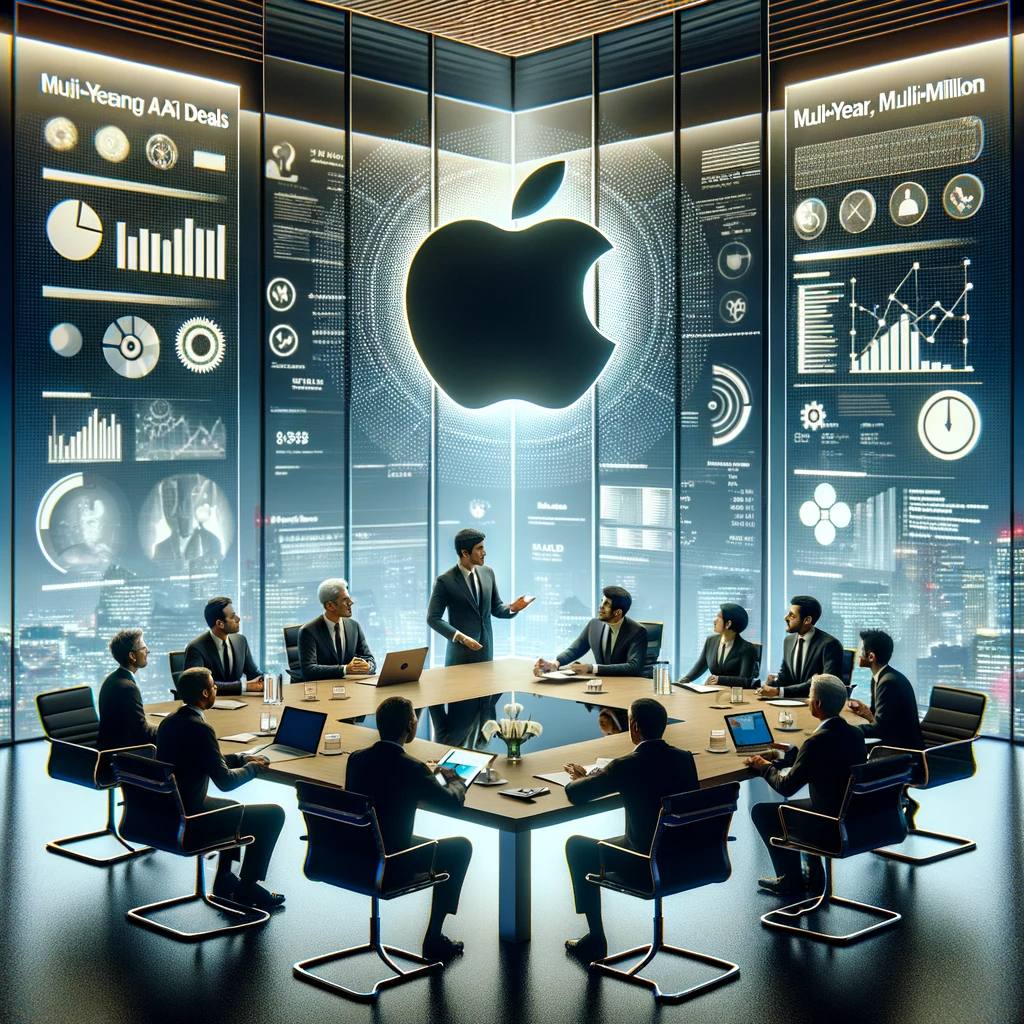In a significant shift in the tech industry’s approach to Generative AI (GenAI), Apple Inc. is actively pursuing multi-year, multi-million dollar agreements with various U.S. news organizations. This move, aimed at utilizing news content to enhance Apple’s GenAI projects, marks a contrast from other tech giants’ strategies, reflecting a deeper integration of technology in news dissemination.
Apple’s proactive strategy in AI development
Unlike its competitors, Apple has adopted a proactive approach in securing rights to use news content for AI training. In late December, it began offering substantial deals to news entities such as NBC News, Conde Nast, and IAC. The initiative, reportedly worth around $50 million, involves broad licensing of content and archives. This approach aligns with Apple’s privacy-centric philosophy and its cautious stance on using internet-sourced data.
Apple’s engagement in the GenAI domain follows its introduction of new MacBook Pro and iMac computers in October, designed to support AI researchers. The company has also ventured into AI-narrated books and is reportedly investing heavily in AI research and development.
Mixed reactions from news publishers
While some publishers like Australian Community Media (ACM) view Apple’s offer as a fair transaction for their reliable content, others express concerns. The apprehension stems from the broad terms of the deals and potential future uses of the content that remain vague. This unease is compounded by the fear of losing direct customer relationships, crucial for subscription-based revenue models.
Jason Sheppard from The Telegraph in London emphasizes the need for clarity in these agreements, highlighting the strategic importance of maintaining direct customer engagement for publishers.
Competitive landscape and industry response
Apple’s move comes at a time when its competitors, like Samsung, are integrating GenAI features into their products. Samsung’s latest smartphone, for instance, boasts Google-powered GenAI capabilities, escalating the competition in the tech space.
OpenAI, on the other hand, has been critiqued for its initial approach to using publisher content. The organization, however, asserts its respect for content creators’ rights and its commitment to beneficial collaborations, as evidenced by partnerships with the American Journalism Project and Axel Springer.
Apple’s strategy also signals an effort to revamp its Siri technology, which has been largely unchanged since its inception. The Verge reports that Apple is spending millions daily on AI and is focused on optimizing large language models (LLMs) for mobile devices.
Apple’s foray into securing news content for its GenAI initiatives represents a notable shift in the tech industry’s approach to AI development. While the move has been met with mixed reactions from publishers, it underscores the evolving relationship between technology and news media. The success of these partnerships will hinge on striking a balance between the tech giant’s ambitions and the publishers’ need to maintain their customer relationships and subscription-based revenue models.





